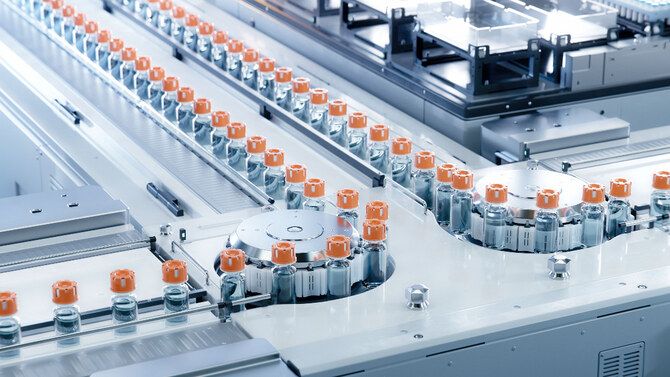Pharmaceutical industry growth proving just the pill for Saudi Arabia’s healthcare goals

- According to Statista, the pharmaceuticals market in the Kingdom is anticipated to achieve a revenue of $5.53 billion by 2024
- Saudi Arabia is set to see a compound annual growth rate of 4.62 percent, resulting in a market volume of $6.93 billion by 2029
RIYADH: As the Saudi government makes substantial investments in healthcare infrastructure, there is a notable increase in the demand for pharmaceuticals in the country.
According to Statista, a German online platform that specializes in data gathering and visualization, the pharmaceuticals market in the Kingdom is anticipated to achieve a revenue of $5.53 billion by 2024.
While significantly lower than the global leader the US – poised to generate $630.3 billion in revenue in 2024 – Saudi Arabia is set to see a compound annual growth rate of 4.62 percent, resulting in a market volume of $6.93 billion by 2029.
A key factor in fueling this increase is the increasing localization of the pharmaceutical industry – a strategy which plays into the Kingdom’s economic diversification strategy Vision 2030.
“While we will have to ascertain the quantified impact of localization on the pharmaceutical industry in Saudi Arabia, we definitely expect it to increase access, reduce cost and make the local pharmaceutical industry more resilient and innovative,” Partha Basumatary, principal in Oliver Wyman’s India, Middle East and Africa Healthcare and Life Sciences Practice told Arab News.
“Localization initiatives have laid the foundation for the Kingdom to become a regional hub of manufacturing for biotech products for the entire Middle East region,” Basumatary added, noting that the Kingdom’s focus on localization for NCD drugs, particularly those targeting type-2 diabetes, is a strong start.
“To truly maximize its impact, however, the Kingdom needs to expand these initiatives beyond NCDs and encompass other critical areas like cancer, infectious diseases, and auto-immune disorders,” Basumatary said.
According to Matthew Lawrence, director of Pharma and Life Sciences, Operations Transformation Lead at PwC Middle East, the Kingdom’s access to, cost of, and standard of healthcare services have all significantly improved thanks to Saudi Arabia’s transformation of the industry.
As a result of these current localization actions, the pharmaceutical industry in Saudi Arabia will continue to see significant change towards accessibility, quality, and economic impact, Lawrence disclosed.
In terms of accessibility, he told Arab News: “Local production ensures a sustainable economy, reducing reliance on imports, therefore, a stable supply of medications, and faster response time during health crises.”
As for quality, he explained that the Saudi Food and Drug Authority ensures that locally manufactured pharmaceuticals meet high quality standards, which leads to improved healthcare services.
With regard to economic impact, Lawrence noted that the industry’s growth has spurred job creation and attracted investments, aiding in economic diversification.
“According to the Kingdom’s National Biotechnology Strategy, there will be 11,000 job opportunities by 2030, and contribute $34.6 billion to the non-oil GDP, by 2040 - potentially positioning Saudi Arabia as one of the leading global hubs for pharmaceutical manufacturing, research, and innovation,” he said.
“This is a clear testament to the major impact Vision 2030 has created in order to improve the healthcare sector across the Kingdom,” the PwC partner added.
)
)
)
)